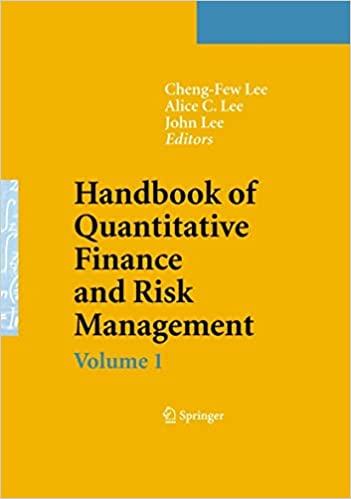Question
Rubenstein Bros. Clothing is expecting to pay an annual dividend per share of $0.85 out of annual earnings per share of $3.25. Currently, Rubenstein Bros.'
Rubenstein Bros. Clothing is expecting to pay an annual dividend per share of $0.85 out of annual earnings per share of $3.25. Currently, Rubenstein Bros.' stock is selling for $13.00 per share. Adhering to the company's target capital structure, the firm has $14 million in assets, of which 35% is funded by debt. Assume that the firm's book value of equity equals its market value. In past years, the firm has earned a return on equity (ROE) of 16%, which is expected to continue this year and into the foreseeable future.
- Based on that information, what long-run growth rate can the firm be expected to maintain? Round your answer to two decimal places. Do not round intermediate calculations. (Hint: g = Retention rate x ROE.) %
- What is the stock's required return? Round your answer to two decimal places. Do not round intermediate calculations. %
- If the firm changed its dividend policy and paid an annual dividend of $1.70 per share, financial analysts would predict that the change in policy will have no effect on the firm's stock price or ROE. Therefore, what must the firm's new expected long-run growth rate? Round your answer to two decimal places. Do not round intermediate calculations. % If this plan is implemented, what must the firm's required return be? Round your answer to two decimal places. Do not round intermediate calculations. %
- Suppose instead that the firm has decided to proceed with its original plan of disbursing $0.85 per share to shareholders, but the firm intends to do so in the form of a stock dividend rather than a cash dividend. The firm will allot new shares based on the current stock price of $13.00. In other words, for every $13.00 in dividends due to shareholders, a share of stock will be issued. How large will the stock dividend be relative to the firm's current market capitalization? (Hint: Remember market capitalization = P0 x number of shares outstanding.) Round your answer to two decimal places. Do not round intermediate calculations. %
- If the plan in Part d is implemented, how many new shares of stock will be issued? Round your answer to the nearest whole. Do not round intermediate calculations. If the plan in Part d is implemented, by how much will the company's earnings per share be diluted? Round your answer to the nearest cent. Do not round intermediate calculations. $ per share
I got part A correct and I am having trouble getting the rest. Thanks
Step by Step Solution
There are 3 Steps involved in it
Step: 1

Get Instant Access to Expert-Tailored Solutions
See step-by-step solutions with expert insights and AI powered tools for academic success
Step: 2

Step: 3

Ace Your Homework with AI
Get the answers you need in no time with our AI-driven, step-by-step assistance
Get Started


